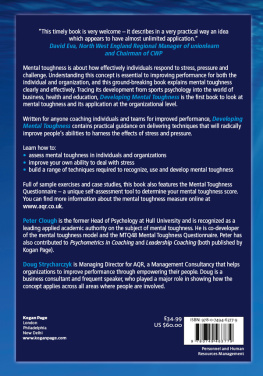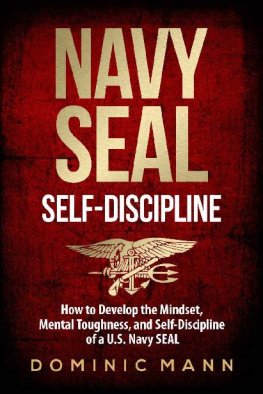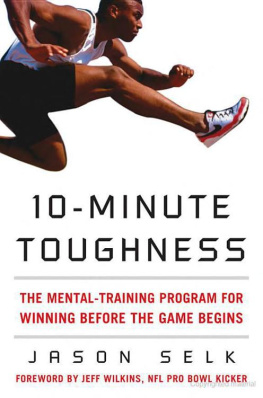Afterword
So long as you aspire and achieve, practice and perform, there will remain a gap between what you want to be and what you are, a world of frustrations and annoyances that beset you as you seek sustained excellence.
The journey is not an easy one, and it will never end.
The key is to enjoy the trip.
When youre at your best, in your Ideal Performance State, there is no difference between what you want to be doing and what you actually are doing. You are totally focused on meeting the challenge of the moment. Aware and confident, energized yet relaxed, you exult in the battle. You cannot control the outcome, but you are in full mastery of what you can controlyour attitudes and skills. You are doing precisely what you want to do, what gives you satisfaction and joy.
The Ideal Performance State has been most studied in athletes, but it belongs to everyone who pursues quality with a passionate intensity. It has been yours during those white moments that you remember so clearly, moments that will come with increasing frequency.
Performing well is a result of feeling good, of being in the right emotional state. Your emotional state is not some uncontrollable mystery, but the reflection of the chemistry of your nervous system.
We have given you the most accessible and most powerful of the many tools you can use to maintain and enhance that control while filling your reservoirs of personal energy. With the strategies of mental toughness, you have the power to narrow the gap between what you are and what you want to be.
No matter how long or arduous your journey, you will enjoy every step.
PERFORMANCE BASICS
Some days, you are better.
You are quicker.
You are stronger.
You see more.
You accomplish more.
Solutions come to you.
You are on a roll.
You are better.
W hy are you so much better on some days than on others? Is it only happenstance, a quirk of fate? Or is there some controllable way for you to perform consistently at the upper reaches of your abilities?
There is a way to be at your best whenever you want or need to be, and it is based upon your ability to control your emotions.
The quality of your performance reflects your emotional state as you perform. Your emotional state colors your perceptions of the external world, and it influences every activity of your body, from the speed of your heartbeat to the fluency of your speech.
From your own experience, you know how difficult it is to think clearly, especially about a complex subject, when you are enraged. You know how anxiety can keep you from relaxing so that you stay tense and dont get enough rest, which means you lack the energy you need to give your work the attention and quality it deserves, which makes you worried and anxious so you cant relax ... And you know how depression can prevent you from caring about things you should care about.
Anger, anxiety, relaxationthese emotions and feelings change the chemistry of every cell in your body. When you are at your best, you are also in a specific emotional state, and you are chemically and physically different than at other times.
Despite what you may have been told, you can control your emotional state through simple and tested techniques. With this control, you will be able to put yourself in the proper emotional state to meet the challenges before you with the best that you have to offer. We call this ability mental toughness. It is neither a gift of heredity nor a stroke of luck; it is the result of applying strategies which can be learned and developed.
Some of these strategies may be new to you; others you already use every day. Any number of books describe top performance in minute detail. Many focus on one strategy to the exclusion of others and place the emphasis on immediate technique rather than fulfilling personal goals. This book is practical. It will show you how to recognize your emotional states and use strategies, alone or in combination, so that you can be at your best whenever you need to be.
THE DISCOVERY
Our work began in sports psychology, a relatively new branch of the discipline. As every fan knows, an athletes performance varies widely from day to day. Top quarterbacks like John Elway or Joe Montana, who cant miss this week, threw eight interceptions last week. Yesterdays four-for-four hitter swings at pitches in the dirt today. John McEnroes overpowering serves on Sunday smashed into the net on Saturday.
When we began our study, there was no good external explanation for this variation. The athletes brought essentially the same skills, practice, conditioning, coaching, and equipment to each contest. So we began to look for internal factors, and it was there that we discovered the constellation of feelings and attitudes we would call the Ideal Performance State. When the athletes experienced those feelings and attitudes, they performed at the upper limits of their abilities. When they performed in other emotional states, there was a gap between their potential and their performance.
In the fall of 1977, we began to systematically interview hundreds of athletes at all levels, from junior-high-schoolers to professionals. We wanted to discover the essence of what we would later call the Ideal Performance State. We were determined to find out what was really going on when athletes used terms like pumped up, treed, psyched, energized, Juiced, wired, or playing over my head.
Heres a composite of their descriptions:
I felt physically very relaxed, but really energized and pumped up. I experienced virtually no anxiety or fear, and the whole event was totally enjoyable. I felt a real sense of calmness and quiet inside, and everything just seemed to flow automatically. I really didnt have to think about what I was supposed to do; it just seemed to happen naturally.
Even though I was really hustling, it seemed effortless. I always seemed to have enough time and energy and rarely felt rushedat times, it was like slow motion. I felt as though I could do anything, as if I were in complete control. I was confident and positive.
It also seemed easy to concentrate. I was totally tuned in to what I was doing. I was also super-awareaware of everything but distracted by nothing. It almost seemed that I knew what was going to happen before it occurred.
Arnold Palmer has explained that golf at his best involves a tautness of mind but not a tension of body. It has various manifestations. One is the concentration on the shot at hand. The other is the heightened sense of performance and renewal that endures through an entire round or an entire tournament. There is something spiritual, almost spectral, about the latter experience. Youre involved in the action and vaguely aware of it, but your focus is not on the commotion but on the opportunity ahead. Id liken it to a sense of reverienot a dreamlike state but the somehow insulated state that a great musician achieves in a great performance. Hes aware of what he is and what hes doing, but his mind is on the playing of his instrument with an internal sense of rightnessit is not merely mechanical, it is not only spiritual; it is something of both, on a different plane and a more remote one.
Babe Ruth, recalling the time that he hit a home run after taking two strikes in the 1932 World Series, said: Root threw me a fast ball. If I had let it go, it would have been called a strike. But this was it. I swung from the ground with everything I had and as I hit the ball every muscle in my system, every sense I had, told me that I had never hit a better one, that as long as I lived nothing would ever feel as good as this.
WHITE MOMENTS
The Ideal Performance Statejoy, confidence, and powercan be part of any human endeavor.





